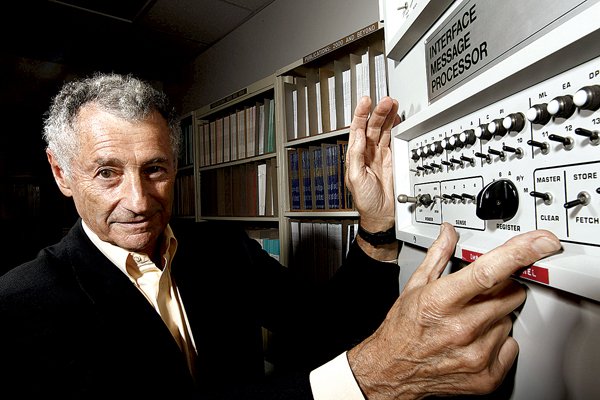LITTLE ROCK — In the 1985 movie Back to the Future, Christopher Lloyd has trouble fueling his DeLorean car after altering it to run on plutonium. Today, Tomoyasu Fujii has the same problem after converting his DeLorean to electric power.
"My biggest headache is that the parking lot in my apartment complex doesn't have a power outlet," said Fujii, 39, an advertising salesman at a newspaper in Hiroshima, Japan.
The building manager won't install a socket, he said. "Since no one else has an electric car, they don't see why they have to bother."
Fujii's 1981 DMC-12 has a lithium-ion battery that takes four hours to charge, so he drives it only on weekends and recharges it at a local workshop. That's also a hurdle for Nissan Motor Co.Chief Executive Officer Carlos Ghosn, whose electric Leaf, unveiled earlier this month, joins battery-powered designs from companies like Mitsubishi Motors Corp. and Fuji Heavy Industries Ltd., which makes Subarus.
Ghosn, who also heads the French automaker Renault, estimates that by 2020, electric vehicles will make up 10 percent of the market - which totaled about 65 million units last year. Lack of fast-charging stations on roads and at home is one of the key challenges manufacturers must overcome.
"Infrastructure, along with pricing, is a critical issue that the popularization of the electric car hinges upon," Mitsubishi Motors' President Osamu Masuko said when the company's i-MiEV electric car was announced in June.
The Japanese carmakers join California's Tesla Motors Inc., whose $109,000 Roadster is the only electric car sold in the United States that's approved for highway use. More battery-powered models are on their way as governments implement stricter CO2 emissions regulations and seek to reduce dependency on fossil fuels.
Toyota Motor Corp., the world's largest carmaker, plans to introduce an electric car in 2012 and General Motors Co. aims to start selling the Chevrolet Volt by November 2010.
"Governments and municipalities around the world are establishing strategic partnerships with us to develop the infrastructure and public acceptance necessary to make zero-emission mobility commercially successful," Ghosn said at a press event for the Leaf on Aug. 2.
However, Ashvin Chotai, managing director of Intelligence Automotive Asia Ltd. in London, says Ghosn's market forecast is too optimistic. Even with competitive pricing, higher gasoline prices and adequate charging stations, demand may reach only a few million units by 2020, he said.
Auto consulting company CSM Worldwide predicts global electric car production will only reach 289,000 units by 2015.
Previous attempts to popularize electric cars have been thwarted by inadequate infrastructure and the cost of production. Toyota sold only about 1,900 electric RAV4 sport utility vehicles between 1997 and 2003 in the United States and Japan.
"Costs have come down and now we are entering an era of mass production," Chotai said. "But there are a lot of uncertainties to iron out before things really start to take off."
One is range. Typically gasoline-powered cars run for 300-400 miles on a tank of gas. Thei-MiEV and Leaf are limited to about 100 miles on a full charge and running the air conditioner can cut the i-MiEV's range to 62 miles. Fuji Heavy's Stella can go about 56 miles. The carmakers say these ranges are adequate for daily use by urban commuters.
Fujii's converted DeLorean stops after only about 30 miles.
Another factor that is likely to affect sales is that electric cars are more expensive, mostly because of the lithium-ion battery. The i-MiEV is priced at $48,300, and the Stella is slightly higher.
Toyota's third-generation Prius, which uses battery power and gasoline and get about 50 miles per gallon, is the top-selling hybrid in many markets including the United States. It starts at$22,000.
Ghosn hasn't announced the price of the Leaf, only saying that it will cost about the same as an equivalent gasoline-powered car. That excludes the battery, which the consumer will pay for in monthly installments that Nissan says will be less than the equivalent cost of gasoline, even with crude oil at about $60 a barrel. Crude has been trading at near $70 lately.
Meanwhile, Toyota, Nissan and Fuji Heavy are researching a more powerful battery.
"At the moment, electric cars are lagging hybrids," Chotai said. "At some point, if there is a breakthrough in battery technology or aggressive government incentives, then it's possible they could overtake hybrids."
To charge up a battery car, there are two options: Plug it into a regular socket for six to eight hours, depending on the model, or connect to a more powerful "quick-charger" that can take as little as 15 minutes to replenish the battery 80 percent. But since a quick charger costs about $37,000 in Japan, not many will be installed at residences.
Information for this article was provided by Alan Ohnsman and Kiyori Ueno of Bloomberg News.
Business, Pages 21, 24 on 08/31/2009
